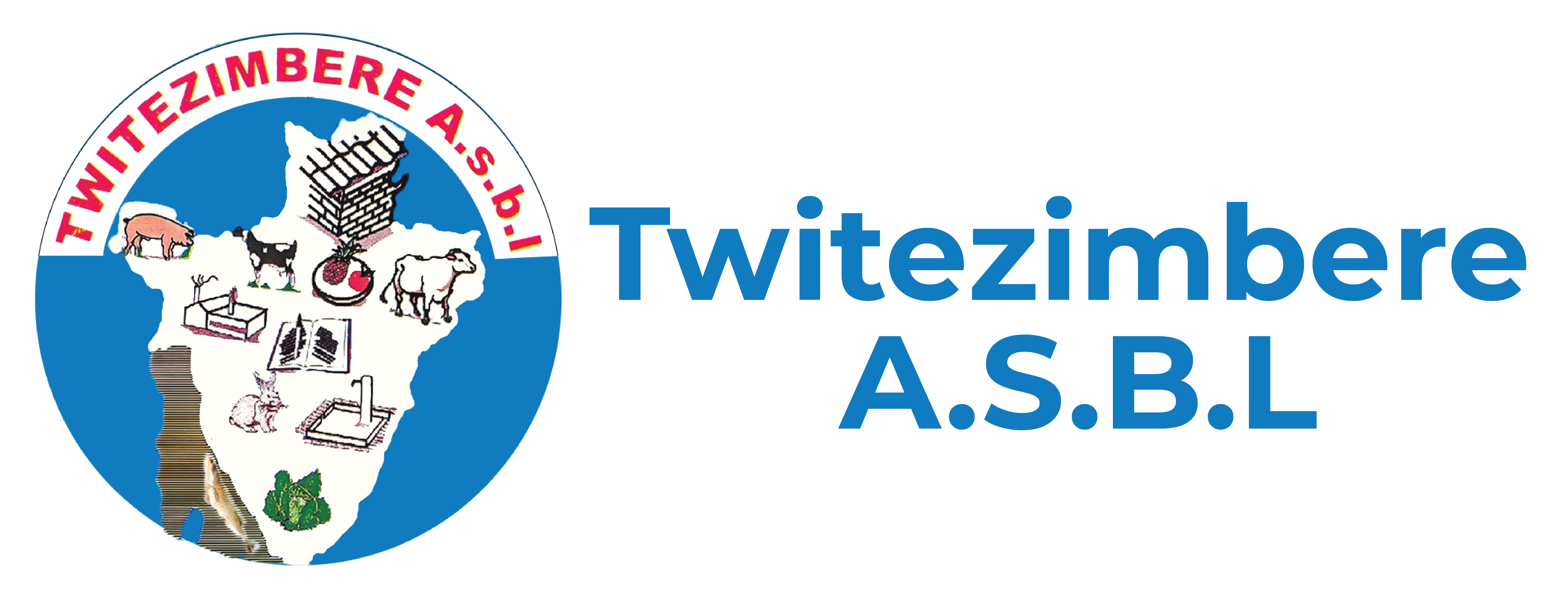Funded by the Embassy of the Kingdom of the Netherlands, SNV is a Dutch development organization active since 1968, in the areas of sustainable agriculture, washing, and sustainable energy.
→ Project objective :
The living conditions of agricultural households, women and young people and market actors are improved through increased income, job creation for youth and women, food and nutritional security and resilience to climate change. .
→ Project Area :
7 provinces (Bujumbura, Bubanza, Cibitoke, Rumonge, Makamba, Gitega and Muyinga), for the Access to Markets and provinces component (Bubanza, Bujumbura, Cibitoke and Muyinga) for the Cooperatives Component
→ Sector :
Agriculture, 8 selected value chains:⦁ Informal value chains (Amaranth, Japanese plum, Marakuja, Chickens and eggs and milk);
⦁ Formal value chains (White Sorghum, Sunflower and Patchouli)
→ Achievements by TWITEZIMBERE Asbl
⦁ The basic approach of TWITEZIMBERE Asbl in its mission on the market access aspect is based on the following principle: “The market drives production”. The identified markets serve as guidance for the production component. This makes it possible to produce to order by knowing: who produces, when to produce, what quantity to produce and what quality required by the market. All these elements make it possible to guide producers and manage the flow of products to markets. Then follows a connection between the actors through win-win contracts allowing customers to know where they can obtain their supplies and at what price, and for producers to know and build business relationships with their customers.
⦁ On the “cooperatives” component, capacity building was carried out by emphasizing the development of the services that cooperatives provide to their members and non-members in their surrounding areas. These structures serve to facilitate producers (members) in the group purchase and order of products, the group sale of production, as well as access to credits from Financial Institutions.
1. Market Access Component
⦁ Local market analysis and research structures by value chain are set up and/or strengthened.
During this period, two new Agricultural Business Clusters (PEAs) were structured, namely 1 PEA Milk in Makamba and 1 PEA Maracuja in Gitega Province. Thus, the number of PEAs increases from 25 to 27 compared to the last quarter. To these 27 PEAs, we must add three supported National Platforms, namely:
⦁ The National Interprofessional Platform for the Milk Sector (PINLAIT);⦁ The National Poultry Platform: Structured with the support of PADANE;
⦁ The Inter-Profession Fruits of Burundi (IPFB).
⦁ The market for value chains is better organized and the role of each actor is well determined from the supply of inputs to consumption.
Thus, for the proper functioning of the market, “win-win” contracts between value chain actors have been negotiated, signed and implemented.
This is facilitated by TWITEZIMBERE Asbl and we reached 230 contracts at the end of March 2024. In the Seven provinces of action of the PADANE project, the number of market actors being supported by TWITEZIMBERE Asbl is Six Hundred and Seven (607)
⦁ “Cooperatives” section.
⦁ Legalization of new cooperatives and cooperative management structures established and strengthened. After structuring, there are 96 cooperatives






